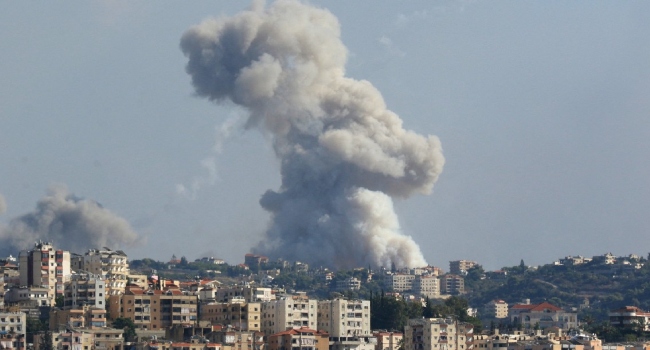Israeli air strikes on Monday killed 274 people, including 21 children, in Lebanon, according to the Lebanese health minister, marking the deadliest escalation of cross-border violence since the war in Gaza began on October 7.
The conflict erupted when Hamas launched the largest-ever attack on Israel, drawing in Hezbollah and other Iran-backed groups from across the region.
Israel reported hitting around 800 Hezbollah targets in southern and eastern Lebanon, and later launched a “targeted strike” in Beirut. Sources close to Hezbollah confirmed that the strike in the capital targeted a senior operative from the group.
Lebanese state media reported fresh air raids in the east of the country, while Hezbollah claimed responsibility for attacking five sites in Israel.
Lebanese Health Minister Firass Abiad stated that the air strikes killed 274 people, including 21 children and 39 women, with around 5,000 others wounded since the escalation began.
World powers have called for restraint, urging both Israel and Hezbollah to avoid a full-scale war as tensions have shifted from Gaza to Israel’s northern border with Lebanon.
“We go to sleep and wake up to the sound of bombardments… this is now our reality,” said Wafaa Ismail, a 60-year-old housewife from Zawtar, a village in southern Lebanon.
The Israeli military announced that it had struck “approximately 800 Hezbollah terror targets” in southern Lebanon and the Bekaa Valley in the east, with more strikes expected. Israeli officials also urged Lebanese civilians to avoid areas linked to Hezbollah.
Thousands of families have been displaced due to the strikes, with hundreds fleeing their homes in Tyre and Sidon, according to local reports. The Israeli military warned residents of the Bekaa Valley to evacuate as it intensified its strikes, including near the ancient city of Baalbek.
The Lebanese National News Agency (NNA) reported additional Israeli air raids on mountainous areas in Baalbek and other nearby towns, including a strike on Hermel.
Hezbollah confirmed it fired rockets at Israeli military sites near Haifa and launched “dozens of rockets” at two Israeli bases in response to Israeli attacks in southern Lebanon and the Bekaa region.
Schools in the targeted areas were ordered to close for two days, and Lebanese residents reported receiving evacuation warnings from Israel via phone messages.
As exchanges of fire between Israel and Hezbollah intensify, Prime Minister Benjamin Netanyahu said Israel is acting to preempt threats and alter the “security balance” in the north. Hezbollah’s deputy leader, Naim Qassem, announced that the group has entered a “new phase” of open conflict with Israel and is prepared for “all military scenarios.”
In recent days, Hezbollah has launched rocket barrages into northern Israel, including attacks near Haifa, after Israeli airstrikes killed Hezbollah commanders, including Ibrahim Aqil, leader of the Radwan Force, in southern Beirut.
Cross-border violence has driven tens of thousands of people on both sides to flee their homes, while the Israeli military continues efforts to degrade Hezbollah’s capabilities along the border.
Lebanese Prime Minister Najib Mikati has called on the United Nations and world powers to stop what he described as Israel’s campaign to “destroy Lebanese villages and towns.”
U.S. President Joe Biden pledged to do everything possible to prevent a wider war, while UN Secretary-General Antonio Guterres warned that Lebanon could become “another Gaza” if hostilities continue.
Hamas’s October 7 attack on Israel resulted in 1,205 deaths, most of them civilians, according to Israeli figures. Of the 251 hostages taken by militants, 97 remain in captivity in Gaza, with 33 believed to have been killed.
Israel’s military offensive in Gaza has killed at least 41,431 people, most of them civilians, according to the Hamas-run health ministry in Gaza. The UN has verified the reliability of these figures.


